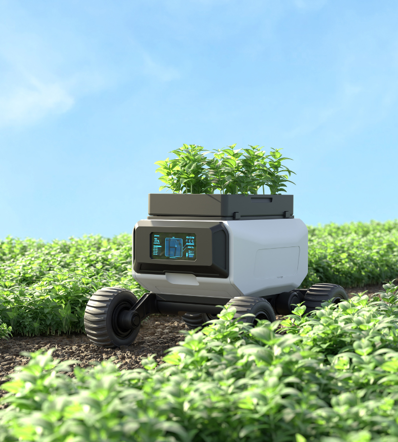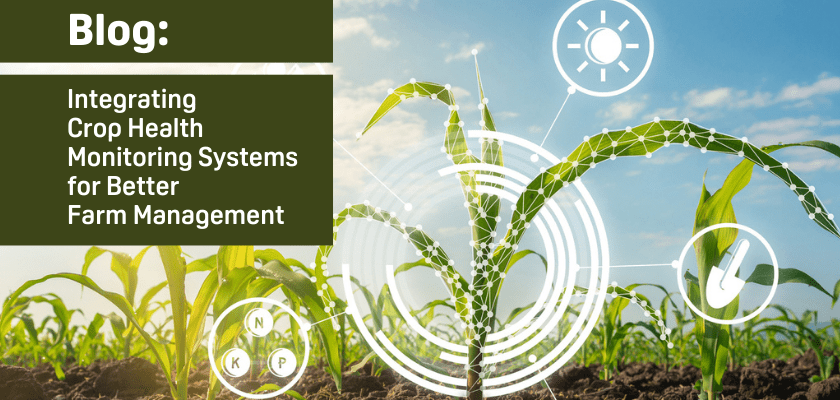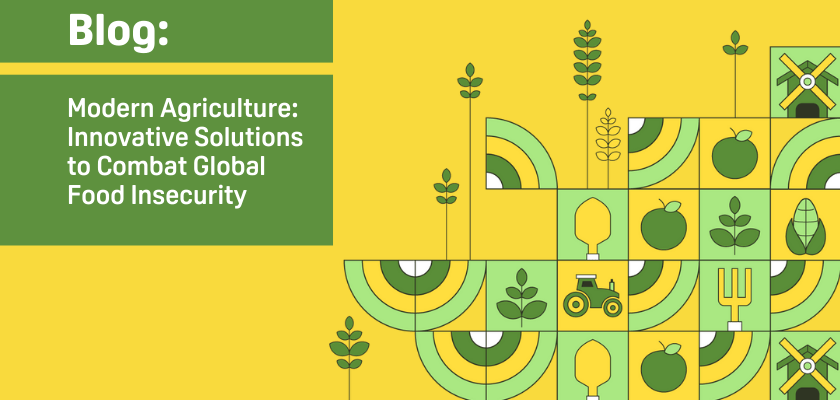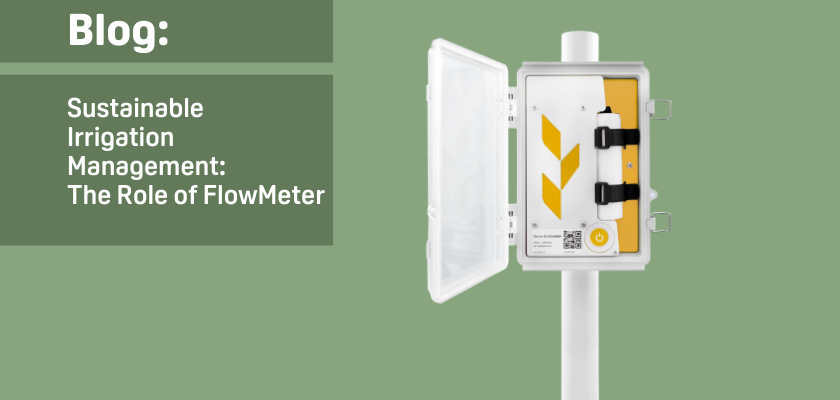

Innovative Farming Technology: Tools and Techniques for Smarter Agriculture
Innovative farming technology leverages IoT, AI, and precision agriculture to optimize resource use, boost crop yields, and enhance sustainability. Tools like Doktar’s Filiz sensor, PestTrap, CropMap, and Orbit empower farmers with data-driven insights, enabling efficient, eco-friendly practices that promote resilience and sustainable food production for future generations.
Published on 05 November 2024
Innovative Farming Technology: Tools and Techniques for Smarter Agriculture
What is the Technology of Farming?
Farming technology encompasses a broad spectrum of innovations that streamline agricultural operations, reduce environmental impact, and optimize yields. Technologies such as IoT sensors, satellite imagery, artificial intelligence, and machine learning are at the forefront of this field. They enable precision agriculture, where watering, pest control, and fertilization decisions are based on specific field data. These advances address variability within fields, leading to more efficient resource use and giving farmers a greater sense of control over their operations.
These technologies not only improve the quality of the crops but also reduce the cost of production. For instance, Doktar's FieldFlow Farm Management System (FMS) centralizes farming operations, reducing the time and effort required for planning and monitoring. This can lead to significant cost savings and increased efficiency. By managing inventory, tracking crop health, monitoring weather patterns, and receiving custom recommendations based on historical and real-time data through FMS, farmers can make more informed decisions, leading to better crop yields and reduced waste. This integration simplifies decision-making and fosters a holistic view of farm management, where every aspect—from planting to harvest—is optimized. Such tools empower farmers to increase productivity sustainably by reducing input costs and minimizing the environmental impact, making FMS a cornerstone in modern farming technology.
What is the Newest Technology in Farming?
Some of the latest advancements in farming technology include IoT-enabled devices like Doktar's Filiz and PestTrap. Filiz is an advanced agricultural sensor station that monitors soil and environmental conditions in real-time, helping farmers optimize irrigation, disease management, and overall crop health. PestTrap takes pest control to a new level with its machine-learning capabilities. It detects and counts pests in real time to minimize crop damage and reduce unnecessary pesticide use.
The use of CropMap also represents a significant advancement in agricultural intelligence. CropMap provides comprehensive insights by detecting field boundaries, identifying crop types, and monitoring harvests. It achieves up to 98% accuracy in crop type identification, helping agribusinesses precisely measure market volume, monitor crop patterns, and tailor their production strategies to current trends.
Another emerging technology reshaping farming is drone-based agriculture, which combines aerial imaging with data analysis to monitor crop health, assess soil conditions, and even assist in targeted applications of fertilizers and pesticides. Doktar leverages satellite imagery through tools like Orbit and CropMap to provide farmers with detailed visual data on-field performance. These aerial insights reveal patterns not easily visible from the ground, such as moisture inconsistencies or early signs of disease, enabling precision interventions. By integrating drones and satellite-based insights, farmers can make swift, precise adjustments to optimize crop health and yield across every part of their fields, further advancing the potential of precision agriculture.
One of the most exciting advancements in recent years is AI-powered predictive analytics. By analyzing historical data and real-time field conditions, AI algorithms can forecast crop growth stages, identify potential risks, and suggest optimal times for planting, watering, and harvesting. Doktar's solutions, like the Disease Risk Status Early Warning System, leverage AI to monitor and predict disease outbreaks based on crop type and phenological stages. This predictive capability minimizes crop losses and allows farmers to plan proactively, optimizing resources and reducing input costs. As predictive analytics continues to evolve, it is set to become an indispensable tool for farmers looking to stay ahead of unpredictable weather patterns, pest pressures, and other critical factors impacting productivity.

What is 4.0 Technology in Agriculture?
Agriculture 4.0 refers to agriculture's digital transformation, which combines IoT devices, data analytics, AI, and machine learning to create a highly efficient farming ecosystem. This wave of technology enables precision agriculture, allowing farmers to make more accurate decisions at every step. For instance, with Doktar's Orbit tool, farmers gain access to a field scouting app that provides real-time monitoring of crop health through satellite imagery. The app identifies potential issues early, allowing farmers to take corrective measures promptly.
Variable Rate Application (VRA), a feature in Doktar's Orbit, is an excellent example of Agriculture 4.0 in action. It categorizes fields into productivity zones and applies customized input levels based on each area's needs, thereby reducing waste and boosting yields.
What is IoT Technology in Farming?
The Internet of Things (IoT) in agriculture connects devices across the farm to gather data and automate processes. Devices like Doktar's Filiz agricultural sensor station collect real-time soil moisture, temperature, and humidity levels, helping farmers optimize irrigation schedules and ensure soil conditions are ideal for each crop stage. PestTrap, another IoT device from Doktar, uses machine learning to monitor pest populations, notifying farmers of pest outbreaks to enable prompt, targeted intervention.
The significance of IoT technology in farming lies in its ability to transform raw data into actionable insights, fundamentally changing how farmers manage their fields. By connecting devices like sensors, cameras, and weather stations, IoT creates a network of real-time information streams, allowing farmers to monitor and respond to field conditions with unprecedented accuracy. For instance, Doktar's Filiz sensor stations continuously gather soil and weather data, giving farmers precise information on when to irrigate, fertilize, or protect crops against diseases. This connectivity level enhances productivity and supports sustainable practices by reducing water and input use. In an era where resource optimization is crucial, IoT technology enables farmers to manage their fields efficiently, make data-informed decisions, and ultimately increase resilience against climate variability and other agricultural challenges.
The Role of Data-Driven Insights in Precision Agriculture
Precision agriculture is increasingly viewed as essential for the future of our planet, addressing the urgent need to produce more food sustainably for a growing global population. By tailoring agricultural practices to the unique conditions of each field, precision agriculture minimizes waste, conserves resources, and reduces environmental impact. This approach allows farmers to apply water, nutrients, and other inputs only where needed, thus lowering emissions, preserving biodiversity, and enhancing soil health. As the climate continues to change, precision agriculture's data-driven methods empower farmers to adapt more efficiently, securing food production in a way that respects ecological limits. Precision agriculture boosts crop yields and promotes a healthier, more resilient agricultural ecosystem for future generations by enabling more competent resource management.
Precision agriculture relies on accurate, localized data to make informed decisions. Doktar's CropMap combines remote sensing and AI-based analysis to track crop types, forecast harvests, and manage crop health. With over 100,000 ground truth samples gathered per region annually, CropMap ensures reliable and actionable insights for agribusinesses. This data enables farmers and corporations to make cost-effective and sustainable decisions, aligning with sustainable and regenerative agriculture principles.
Enhancing Sustainability Through Technology
Sustainable agriculture focuses on practices that promote environmental health while supporting food production. Technology like Doktar's SoilScanner enables farmers to assess soil health and customize fertilization based on precise nutrient levels, helping reduce excessive chemical use. Similarly, Doktar's climate and sustainability initiatives support regenerative agriculture practices, such as water replenishment and carbon management, to minimize environmental impacts.
Technology is also crucial in promoting farm carbon management, a key component of sustainable agriculture. Solutions like Doktar's Variable Rate Application (VRA), part of its tool, help farmers apply precise amounts of fertilizers and pesticides only where they are most needed, reducing excess input use that can lead to greenhouse gas emissions. Tools such as soil health monitoring and AI-driven yield forecasting also assist farmers in adopting practices that sequester more carbon in the soil, effectively transforming farms into carbon sinks. By integrating such technologies, farmers lower their carbon footprint and contribute to global climate goals, demonstrating how advanced agriculture can lead the way in achieving sustainability and resilience in the face of climate change.
Conclusion
Innovative farming technology redefines agriculture, making it smarter, more efficient, and more sustainable. Farmers can respond proactively to field conditions, conserve resources, and enhance yields by leveraging IoT devices, AI-driven models, and precision agriculture techniques. With its suite of digital products, Doktar is at the forefront of this transformation, helping farmers and agribusinesses adopt a more sustainable, data-informed approach to agriculture. As we embrace these advancements, agriculture will continue to evolve, ensuring food security and environmental stewardship for generations.

Integrating Crop Health Monitoring Systems for Better Farm Management
Crop health monitoring systems revolutionize modern agriculture by enabling real-time insights into plant health, reducing losses, and promoting sustainability. Tools like Doktar’s CropMap and Orbit integrate advanced technologies, empowering farmers with data-driven decisions. By enhancing efficiency and sustainability, these systems are essential for future-proofing agricultural operations.

Modern Agriculture: Innovative Solutions to Combat Global Food Insecurity
Modern agriculture combats global food insecurity with precision agriculture, sustainable practices, and biotechnology. Tools like IoT, automation, and crop innovations optimize resource use, enhance resilience, and ensure stable food supplies. By integrating smart technologies, agribusinesses address challenges like climate change and resource scarcity, paving the way for a sustainable food future.

Sustainable Irrigation Management: The Role of FlowMeter
Flow meters transform irrigation by enabling precise water measurement, reducing waste, and optimizing crop yields. Tools like Doktar’s FlowMeter empower farmers to enhance water-use efficiency, conserve resources, and lower costs. By integrating flow meters into modern farming, agribusinesses achieve sustainable irrigation solutions, address environmental challenges, and ensure long-term agricultural resilience.
